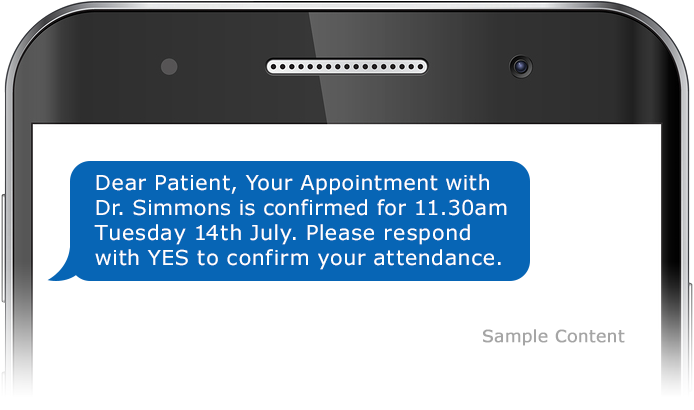Patient engagement is pivotal in sustaining healthcare systems and enhancing our communities’ well-being. Studies have demonstrated that patients who are less engaged are twice as likely to postpone seeking care and three times more likely to have unmet medical needs. Two prominent barriers to achieving high patient engagement are referral leakage and no-shows.

Referral Leakage & No-Shows
Referral leakage occurs when patients fail to follow through on a referral for additional services, whether the referral involves seeing a specialist or undergoing further testing. There are two types of referrals: in-network and out-of-network referrals. Opting for in-network referrals is the preferred approach, allowing patients to stay within the same healthcare network. Consequently, when out-of-network referrals are issued despite the availability of in-network specialists, it is suboptimal and leads to revenue loss for the healthcare system. However, regardless of the type of referral leakage remains a significant industry challenge, resulting in an average revenue loss ranging from 10% to 30%.

Additionally, less than 35% of referrals culminate in documented visits, and 63% of physicians express dissatisfaction with current referral processes. Although some patients are unwilling to follow up, healthcare providers can address other reasons for patients’ failure to pursue referrals. One common issue is the lack of effective communication from the referring agency, leaving patients without the necessary information to schedule appointments.
Closely related to referral leakage is the problem of no-shows, referring to instances where patients book appointments but do not attend them. On average, specialty and subspecialty clinics experience a no-show rate of 18.8%, while medical practices face rates between 5-7%. Each no-show represents a significant setback for the healthcare provider, as they invest time, effort, and resources in preparing for a patient who does not arrive. This becomes especially problematic when the provider cannot offer the appointment slot to another needy patient. From an operational standpoint, no-shows are a widespread problem, costing the healthcare industry $150 billion annually.
The problems of referral leakage and no-shows can be alleviated by prioritizing patient engagement and personalized care. Patients may forget about upcoming appointments when health information is shared in an inconvenient format or not shared at all. Thus, the goal is to provide relevant engagement content that creates opportunities for both the patient and the healthcare practice.
Patient Engagement and Marketing Use Cases in Healthcare
Unified Patient Profile and Segmentation
The need for actionable insights from patient data has become increasingly crucial in healthcare marketing. Building a unified and comprehensive patient profile equips healthcare marketing teams with the essential resources to execute more personalized and impactful campaigns. Integrating patient data from diverse sources into a consolidated view is pivotal. Once achieved, marketing teams can effectively segment patients into distinct cohorts, facilitating the delivery of timely and relevant messaging to specific patient groups. For instance, identifying patients with upcoming procedures enables healthcare providers to send precise reminders or procedural instructions, enhancing overall patient engagement and satisfaction.
Preventative Care Alerts (PROMS)
A proactive strategy to address referral leakage involves distributing Patient-Reported Outcome Measures (PROMs) questionnaires to patients referred to specialists. These specialized PROM questionnaires are designed to collect feedback directly from patients about their symptoms, well-being, and overall health status. Importantly, these questionnaires are tailored to the specific medical condition in question, making it possible for the referral practice to initiate the notification. Thus, this approach guarantees the patient establishes contact with the intended referral practice.
On receiving these questionnaires, patients are empowered to self-assess the progression of their symptoms, enabling them to make informed decisions about scheduling follow-up appointments. For example, suppose a patient has not scheduled a follow-up appointment for a month and receives an email containing a PROM questionnaire indicating worsening symptoms. In that case, it can serve as a motivating factor for them to promptly book the necessary follow-up appointment. These personalized, condition-specific notifications engage patients meaningfully, resulting in more scheduled visits and better referral adherence.
Additionally, proactively distributing the PROMs survey before the appointment elevates the patient experience during the visit. The patient’s care team can now review and discuss the questionnaire during the actual appointment rather than leaving it underutilized afterward. This approach facilitates a more tailored and comprehensive conversation, ultimately enhancing the quality of care and patient-provider communication during the appointment.
Send Appointment Reminders
Minimizing no-shows, which can occur weeks or even months after the appointment, particularly in referrals where patients might need assistance finding a new provider, can be effectively achieved through automated appointment reminders. Healthcare providers can significantly enhance appointment attendance rates by automating reminder notifications via various communication channels, including SMS, email, or phone calls. This ensures patients receive timely reminders and streamlines the appointment management process, ultimately leading to heightened patient engagement and optimized healthcare operations.

SMS messaging presents a promising avenue to explore within the domain of healthcare marketing, effectively overcoming the limitations associated with conventional email communication. Traditional emails often go unnoticed, leading to patients forgetting their appointments. Integrating SMS into patient engagement strategies effectively mitigates these issues. SMS boasts an impressive 98% open rate, 8 making it a crucial tool for connecting with patients, especially younger individuals who prefer text messaging.
Orchestrate Personalized Education Journeys
Healthcare providers focused on patient engagement face the labor-intensive process of customizing content and messages for each patient. Moreover, adapting content based on individual patient engagement patterns and preferences can be daunting and time-consuming.
In response to these challenges, healthcare providers have embraced the concept of automated care journeys. These journeys are designed to dynamically adapt touchpoints based on individual interactions and specific triggers, such as appointment scheduling or class registration. They offer a versatile framework for delivering a wide range of patient education resources, including emails, text messages, event invitations, and more. Healthcare providers can craft personalized content tailored to each patient and specific cohorts grouped by diagnosis or medical conditions through automated care journeys.
Patient Satisfaction (HCAPS)
Hospital Consumer Assessment of Healthcare Providers and Systems (HCAPS) surveys are invaluable tools for evaluating and enhancing the patient experience within a healthcare system. By actively seeking patient feedback through automated surveys, healthcare providers can gauge the effectiveness of their patient engagement efforts and their impact on overall patient satisfaction.

One significant advantage of automating the screening of patients for HCAPS measures is the ability to collect data on patient satisfaction and experiences systematically. This proactive approach ensures a comprehensive and representative sample of patient responses, facilitating more meaningful analysis and insights.
Moreover, the automation of HCAPS surveys streamlines the reporting process, particularly for compliance with Centers for Medicare & Medicaid Services (CMS) requirements. Healthcare organizations can efficiently compile and analyze patient responses, allowing for more informed decision-making in care planning and resource allocation.
D365 Marketing and IHC
All of the previously mentioned use cases can be seamlessly implemented through the combined utilization of Microsoft technologies and the Imperium Health Cloud platform. The Microsoft Dynamics 365 Marketing app, now known as Customer Insights – Journeys empowers healthcare providers to engage with patients in a highly targeted manner, crafting personalized journeys.
Imperium Health Cloud enhances the capabilities of Customer Insights – Journeys and Power Platform with customized modules designed specifically for healthcare marketing. The Imperium Health Cloud Core module facilitates the seamless integration of clinical systems, allowing medical data to be harnessed to create precise marketing segments. One of the most persistent hurdles in healthcare marketing is the fragmentation of patient data across various systems. Clinical data, marketing insights, and customer relationship management (CRM) data often reside in separate silos, making it daunting to harness their full potential. This fragmentation poses a significant challenge to crafting cohesive marketing campaigns. Imperium Health Cloud bridges this gap by seamlessly integrating data from different sources into a holistic patient profile.
Additionally, the PROMs Solution efficiently handles the distribution and configuration of PROMs and HCAPs surveys. This solution features portals for patients to take the surveys electronically, which can be sent out automatically. Furthermore, the HIPAA Compliant Texting Module offers a native SMS communication solution within Teams, with alert notifications and pre-defined response management. Lastly, the Care Journeys enables the seamless integration of Microsoft Marketing with the Imperium Health Cloud platform, creating a comprehensive and unified healthcare marketing solution.
Next Steps
Want to learn more about how Patient Engagement Solutions using Microsoft 365 and Imperium Health Cloud can help your healthcare business? Contact Us | Imperium Dynamics

References:
- https://adracare.com/2021/06/09/patient-engagement-statistics/
- https://www.mercuryhealthcare.com/faq/patient-referral-leakage
- https://link.springer.com/article/10.1007/s11606-018-4392-z
- https://www.ncbi.nlm.nih.gov/pmc/articles/PMC1495590/
- https://www.ncbi.nlm.nih.gov/pmc/articles/PMC4714455/
- https://www.aafp.org/pubs/fpm/blogs/gettingpaid/entry/no_shows_lost_revenue.html
- https://silverlinecrm.com/blog/healthcare/25-healthcare-stats-that-show-the-power-of-patient-centered-care/










